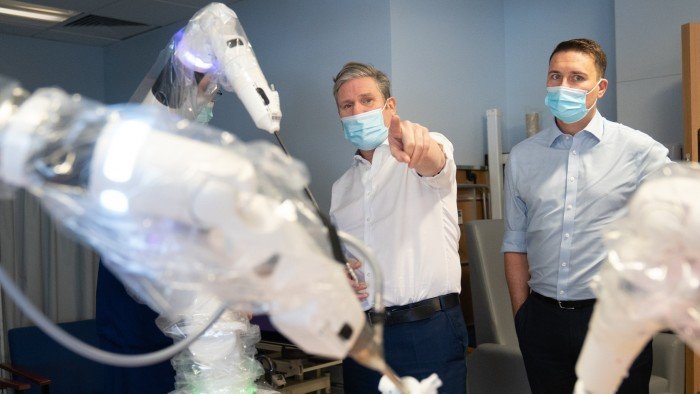Wes Streeting, the UK health secretary, is right to be excited about the potential of robot-assisted surgery to improve patient care and NHS productivity (June 28). But this vision will not be realised without urgent capital investment.
Robot-assisted surgery can offer faster recovery times, fewer complications and shorter hospital stays. It also has the potential to reduce variation in surgical performance and improve ergonomics for surgeons. However, the technology is expensive, and many NHS hospitals lack the infrastructure to house and operate these systems. Without dedicated capital funding, trusts that have not yet invested in robotics risk falling further behind — unable to access the benefits, yet penalised financially under new “best practice” tariffs.
While early evidence is promising, the clinical and cost effectiveness of robotic-assisted surgery is still being established. As the Royal College of Surgeons of England has highlighted, further high-quality research is needed to evaluate long-term outcomes. We must not rush into rapid expansion without a robust evidence base.
The Ideal framework for surgical innovation exists for good reason: to ensure new technologies are introduced safely, effectively and equitably. As surgeons, our priority is ensuring patients receive the right operation, at the right time, with the right technology — robotic, laparoscopic, or open surgery. We support the ambition, but it must be underpinned by investment in both technology and the crumbling NHS estate, and guided by evidence, not just enthusiasm.
Tim Mitchell
President, Royal College of Surgeons of England, London WC2, UK

